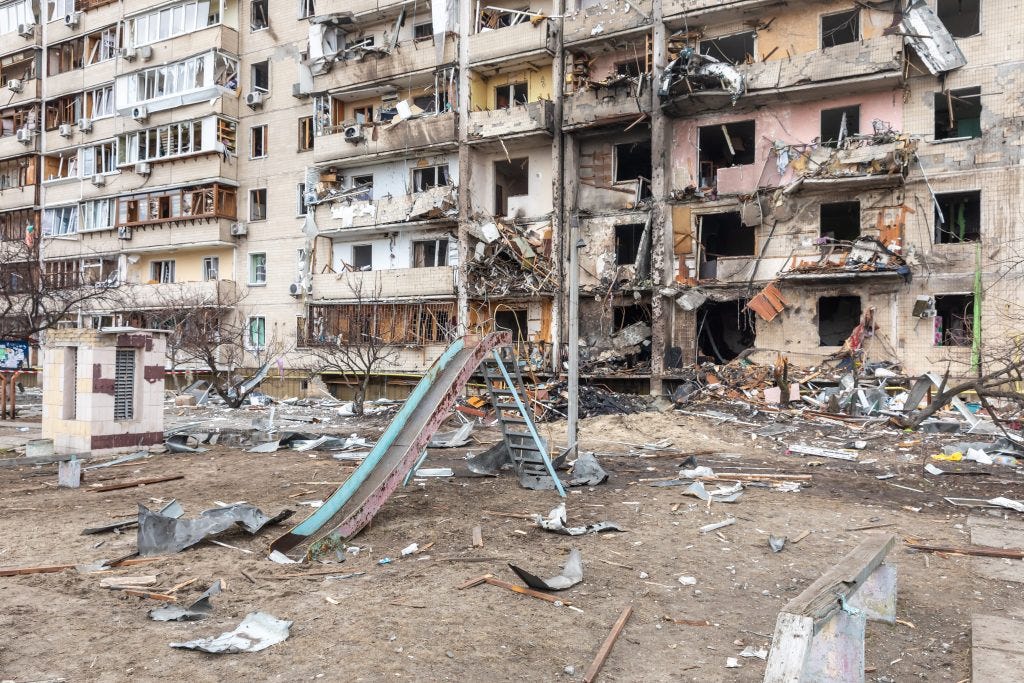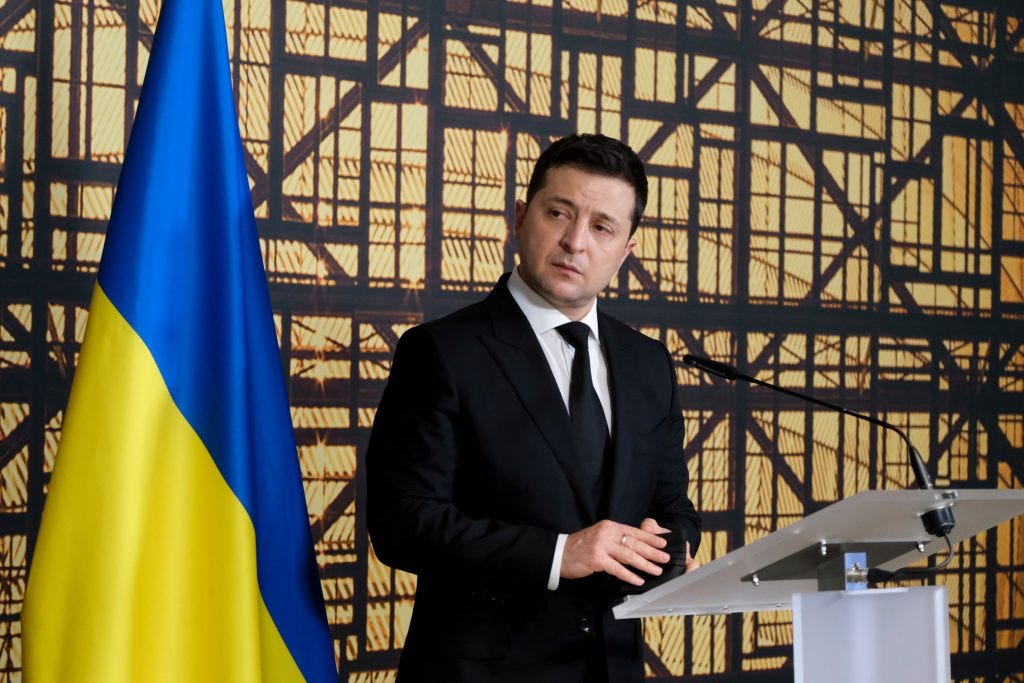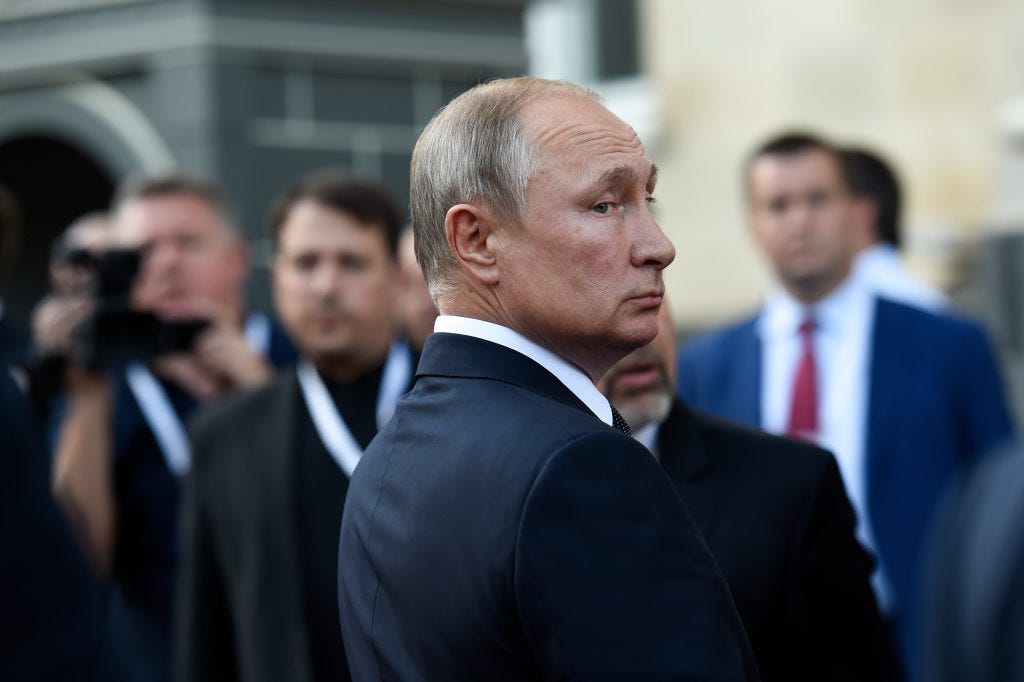Putin may be better than the alternatives: analyst
No clear path for peace in Ukraine
Many people with whom I speak think the best path to peace in Ukraine is Russian Federation President Vladimir Putin just going away.
Quit, deposed, assassinated; either way, the feeling is that a new Russian leader will be less inclined to continue the war - and that's the best way to end it.
But what many close observers are coming to understand is that potential replacements for Putin may be more dangerous for Ukraine and the West, not less.
As the new year begins, it's worth revisiting the state of the conflict, and prospects for peace – or global war.
What follows is an edited transcript of remarks by the The Telegraph’s Assistant Comment Editor Francis Dearnley on the daily podcast, “Ukraine: The latest.”
The editorial slant of the paper’s coverage is very pro-Ukraine, but on balance it provides some of the best-informed reporting of the war. (This transcript has been edited and subtitled for ease in reading. The link to the original is below.)
Francis Dearnley, The Telegraph, January 3, 2023:
2023 began with two speeches, both defiant.
Zelensky, in his stirring New Year’s remarks recounted some of the turning points of the war so far with footage of Russia's attacks and words of pride for Ukrainians. “For withstanding the darkness and the cold, we were told you have no other option but to surrender. We say we have no other option than to win,” he said, dressed in his trademark kaki outfit.
Contrasting that with Putin's speech.
“The West lied about peace,” he shouted, surrounded by soldiers and sailors in uniform. “It was preparing for aggression and now they are cynically using Ukraine and its people to weaken and split Russia. We will triumph for our families and for Russia.” And then he concluded before toasting the service members with champagne.
It speaks, I think, to the central problem as this new year begins.
Intransigence on both sides
How can this intransigence shift in a direction from the Russian perspective or the Ukrainians’ that makes a prolonged peace possible? The Ukrainians justly are more committed than ever now to fighting on to total victory, with Russia completely out of the Donbas and Crimea [occupied regions of Ukraine], more so than they were before the first shells dropped on February 23rd last year.
Putin's speech and the wreath of propaganda surrounding it is, on the surface, at least seemingly totally committed to escalation and victory.
It’s a war of attrition
Thus, as we've said for months now, we are in a war of attrition, a battle of patience and resources measured in manpower, morale, and munitions.
As things stand, it would seem that Russia is more likely to crack first. Their losses are greater, and were formally at a level that was so unsustainable that they had to totally change strategy last year.
The West remains committed to providing weapons for Ukraine. Morale is high for all the talk of Russia's infinite supply of men and resources.
But Russia is still mobilizing hundreds of thousands of men for renewed offenses in the coming months, apparently to try and retake [Ukraine’s capital] Kyiv. The Kremlin is spinning this as a war of survival against the West, and given Russia's history that's not ineffective.
Thus, while I still believe that Russia is more inclined to blink or break first as they did in Afghanistan during the Cold War, which they perceived as similarly existential, I fear it will take longer than many predict.
Russian sanctions not working?
Russia's economy has proved more robust than expected in the short term. Billions of Euros worth of oil and gas are still being paid for by foreign powers in Europe and beyond, especially China. The total severance of Russia from the world market has not happened.
A long war ahead
So where does that leave us? Well, as I say, I think a long war is now entirely possible. And that would mean one of two things:
The first is Putin ramps up, he mobilizes more men to stop the bleeding. We see a return of the nuclear rhetoric.
But if Crimea is threatened, we might even see a return of the perceived use of strategic nuclear weapons as being a real threat that countries believe is possible. And I say perceived because it might not be possible for them to deploy them both for the internal threats to the regime and because the weapons are not actually usable, as we've talked about before. But the perception I fear, will be enough to spook some countries in Europe.
And that's a very dangerous moment for Ukraine: One that could see certain Western countries pullng the plug for the first time.
Be careful of what you wish for
The alternative scenario is that Putin is deposed by someone. But I think we have to be realistic.
After one year of war, which has not really impacted Russians, is it really likely that we would see a leader come in that's less likely to sabre-rattle, threaten and escalate this war?
From speaking to our sources, this is a prominent fear amongst the intelligence community and among Western leaders.
So we find ourselves, I fear, in a strange scenario where it is slow victory for the Ukrainians, [while] not overturning this delicate balance. Keeping Putin in power, making mistakes without the nuclear threat ever being seriously made. This may be strategically preferable.
But is that morally tenable when so many people are dying day after day?
Listen to “Ukraine destroys Russian barracks with deadly HIMARS attack & predictions for 2023,” on the podcast Ukraine: The Latest, published on January 3, 2023. (Requires Spotify or Apple podcasts )




